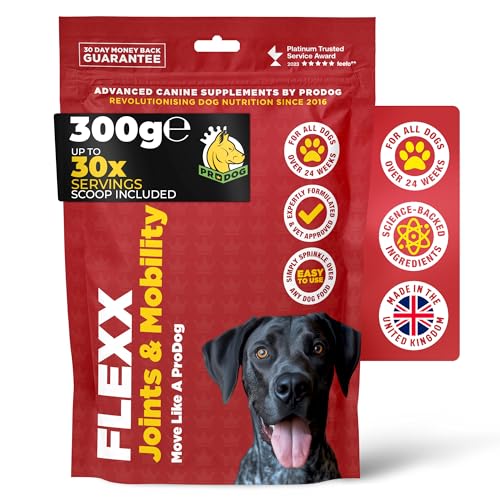




If your furry friend is experiencing an upset stomach after dark, the first step is to evaluate their diet. Consider whether they have eaten too quickly or if there have been changes in their food. High-fat meals or sudden introductions of new treats can upset their digestive system. You might want to try feeding smaller portions more frequently to alleviate this issue.
Next, assess their activity level before bedtime. Excessive play or exercise close to their feeding time can lead to gastrointestinal distress. A calm routine in the evening, followed by a quiet period before sleep, may help settle their stomach.
Keep an eye on their environment as well. Stressful situations, such as loud noises or changes in the household, can lead to discomfort. Creating a soothing space for relaxation can be beneficial. If vomiting persists, don’t hesitate to consult with a veterinarian to rule out any underlying health conditions.
Understanding Nighttime Vomiting in Pets
If your furry companion is experiencing episodes of regurgitation during the late hours, consider evaluating their diet and eating habits first. A common reason for this behaviour can be the consumption of food too quickly. Try using a slow feeder bowl to encourage a more measured pace during meals.
Another factor could be the timing of their last meal. Providing a late-night snack might help to prevent an empty stomach, which can lead to nausea. Opt for easily digestible options that won’t upset their tummy. Additionally, maintaining a consistent feeding schedule can aid in regulating their digestive system.
Potential Health Concerns
Keep an eye out for other symptoms accompanying the vomiting. If your pet shows signs of lethargy, distress, or changes in appetite, it’s best to consult with a veterinarian. Conditions such as gastritis or pancreatitis can manifest through these symptoms and may require medical attention.
Environmental Factors
Sometimes, environmental changes can be a trigger. Stress from loud noises or changes in routine may upset their stomach. Creating a calm and secure sleeping environment can be beneficial. Incorporate calming aids, like pheromone diffusers or a favourite blanket, to help soothe their nerves.
Monitoring your pet’s behaviour and making small adjustments can significantly improve their well-being. Keep notes on their eating habits and any incidents of discomfort to share with your vet, ensuring a thorough evaluation if needed.
Common reasons for nighttime vomiting in pets
If your furry friend is experiencing episodes of sickness during the late hours, consider these likely culprits: dietary indiscretion, anxiety, or medical conditions.
Dietary indiscretion
Sometimes, our companions can’t resist the temptation of scavenging. Ingesting inappropriate items, such as spoiled food or foreign objects, often leads to gastrointestinal upset. Keeping an eye on what they consume throughout the day can prevent these uncomfortable episodes.
Anxiety and stress
Emotional factors can significantly affect health as well. A sudden change in the environment–new family members, loud noises, or even a change in routine–can trigger stress that manifests as sickness. Establishing a calm bedtime routine may help ease anxiety and reduce these occurrences.
If these episodes persist, consult a veterinarian to rule out underlying health issues. Regular check-ups can help ensure that your companion remains healthy and happy.
How to Identify Food-Related Issues Causing Vomiting
Start by monitoring your pet’s eating habits. Keep a detailed record of when they eat, what they consume, and the timing of any regurgitation. A food diary can reveal patterns, helping you pinpoint specific items that might be problematic.
Check Ingredients
Examine the labels of all food products and treats. Allergens such as beef, chicken, dairy, and grains are common culprits. If you suspect a particular ingredient, consider eliminating it from their diet temporarily to see if there is an improvement.
Portion Control
Overfeeding can lead to discomfort and subsequent vomiting. Follow the recommended serving sizes on food packaging, adjusting for your companion’s size and activity level. Split meals into smaller portions throughout the day to ease digestion.
| Signs of Food Intolerance | Possible Causes |
|---|---|
| Frequent vomiting after meals | Food allergies or intolerances |
| Excessive gas or bloating | Poor-quality ingredients |
| Changes in stool consistency | Unsuitable diet or sudden changes |
| Itchy skin or ear infections | Allergic reactions to specific foods |
If symptoms persist after adjusting the diet, consult a veterinarian for tailored advice. They might suggest allergy testing or a specialised diet to determine the root cause of the issue.
Signs of Illness to Watch for Alongside Vomiting
Pay attention to any additional symptoms that may accompany the regurgitation, as these can indicate a more serious underlying condition. Here are some key signs to monitor:
Physical Symptoms
- Diarrhoea: Loose stools or frequent trips outside could suggest gastrointestinal distress.
- Abdominal Pain: Whining, reluctance to be touched, or a hunched posture may signal discomfort.
- Lethargy: A noticeable drop in energy or interest in activities could indicate illness.
- Dehydration: Sunken eyes, dry gums, or excessive thirst are warning signs.
Behavioural Changes
- Changes in Appetite: Refusal to eat or drastic changes in eating habits can be concerning.
- Excessive Vocalisation: Increased whining or barking might indicate distress.
- Restlessness: Pacing or inability to settle down can be a sign of discomfort.
Should any of these symptoms appear alongside vomiting, consult with a veterinarian promptly for a thorough examination and appropriate treatment options. Early intervention can often make a significant difference in the outcome.
When to Consult a Veterinarian for Vomiting
If your furry friend is experiencing regurgitation, it’s crucial to seek veterinary advice under certain conditions. If the vomiting persists for more than 24 hours, this is a clear indicator that professional help is needed. Additionally, if you notice blood in the vomit or if your pet appears lethargic, this requires immediate attention. Signs of dehydration, such as dry gums or excessive thirst, should not be overlooked either.
Any sudden changes in behaviour, like refusing food or showing signs of pain, warrant a trip to the vet. Weight loss over a short period is another alarm bell. It’s also wise to consult a vet if there are other symptoms present, such as diarrhoea, which could indicate a more serious underlying condition.
Keep in mind that dietary issues might be a contributing factor to the vomiting. If you’ve recently changed your pet’s food, or if you’re unsure about the quality of the food, consider researching options like the best dog food for long haired dogs to ensure a balanced diet.
Trust your instincts; you know your companion best. If something feels off, don’t hesitate to reach out to your veterinarian for guidance. Their expertise can help identify the cause and provide the necessary treatment to get your furry friend back on track.
Home remedies to soothe a canine’s stomach
When a furry friend seems unwell, there are several home remedies that can provide comfort and relief. Here are some options you might find helpful:
- Ginger: A small amount of ginger root can help ease nausea. You can grate fresh ginger and mix it with their food or offer ginger tea, ensuring it’s cooled and unsweetened.
- Plain Rice: Cooking plain white rice and mixing it with a bit of boiled chicken (without skin) can create a gentle meal that’s easy on the stomach.
- Pumpkin: Canned pumpkin (not the spiced pie filling) is rich in fibre and can help regulate digestion. A tablespoon mixed into their food can be beneficial.
- Bone Broth: Homemade bone broth can be soothing and nutritious. Just ensure it’s free from onions and garlic, which can be harmful.
- Probiotics: Adding probiotics designed for pets can help balance gut bacteria. They can be found in pet stores or through your veterinarian.
- Hydration: Always ensure access to fresh water. If your companion refuses to drink, try offering ice cubes or ice chips to encourage hydration.
Monitor the response to these remedies closely. If symptoms persist or worsen, it’s crucial to seek professional advice. Always consult with a veterinarian before introducing any new treatments to ensure safety and appropriateness for your pet’s specific needs.
Preventative measures to reduce nighttime vomiting
Adjust feeding times to earlier in the evening. A schedule that allows for digestion before bedtime can significantly decrease the likelihood of regurgitation. Aim for at least a couple of hours between the last meal and sleep.
Monitor portion sizes closely. Overfeeding can lead to discomfort and subsequent vomiting. Stick to recommended serving sizes based on your pet’s weight and activity level.
Switch to high-quality, easily digestible food. Look for options that contain limited ingredients and avoid fillers, which can upset an unsettled stomach. Gradually introduce any new diet to avoid shocking the system.
Incorporate slow feeders or puzzle bowls. These tools can help slow down eating, preventing gulping and reducing the risk of vomiting due to rapid consumption.
Avoid giving table scraps or human food. Many common ingredients can irritate the stomach and lead to issues later on. Stick to a consistent diet to maintain digestive stability.
Ensure fresh water is always available, but limit access right before sleep. This can help prevent drinking too much right before lying down, which can cause nausea.
Regular exercise promotes overall health and digestion. A daily routine of physical activity can keep your companion’s system functioning well and help them manage their weight.
Keep an eye on any changes in behaviour or eating habits. Early detection of issues can prevent more serious health concerns. If anything seems off, consult with a vet to discuss potential dietary adjustments or health checks.
Cleaning up after meals is crucial. If your pet has had an upset stomach, ensure the area is free from remnants that could lead to further issues. For cooking enthusiasts, learn to clean crab for cooking to develop your culinary skills while keeping your space tidy.









